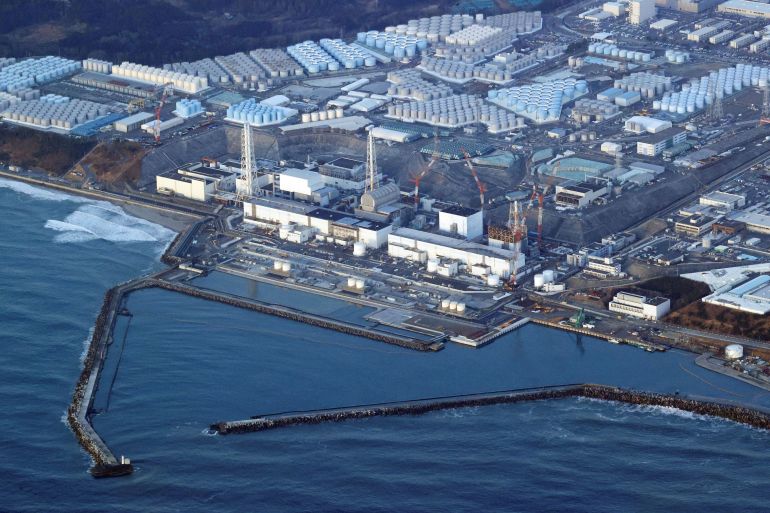Pacific Islands urge Japan to delay release of Fukushima waste
Japan’s planned release of wastewater from the Fukushima power plant raises concerns in Pacific Island nations that are still grappling with the legacy of nuclear testing decades ago.

Pacific Island nations have urged Japan to delay the release of wastewater from the Fukushima nuclear power plant over fears it could contaminate fishing grounds.
The appeal on Wednesday came days after Japan announced that treated wastewater from the Fukushima plant — which was destroyed in an earthquake and a tsunami in 2011 — could be released into the sea “around this spring or summer”.
Keep reading
list of 4 itemsJapan, US and Europe must act together on China, PM Kishida says
Japan prosecutors indict man for ex-PM Shinzo Abe murder: Media
Japan says Fukushima water release to start in ‘spring or summer’
More than 1 million tonnes of water are being stored in about 1,000 tanks at the destroyed plant, hampering its decommissioning and in danger of leaking in the event of a major earthquake or tsunami.
The Pacific Island Forum (PIF), a regional bloc of 17 island nations, many of whom are still grappling with the legacy of nuclear testing decades ago, say the release of the water could have a significant effect on fishing grounds that their economies rely on, and where up to half of the world’s tuna is sourced.
“Our region is steadfast that there be no discharge until all parties verify it is safe,” PIF Secretary General Henry Puna said on Wednesday at a livestreamed public meeting in Suva, Fiji.
“We must prevent action that will lead or mislead us towards another major nuclear contamination disaster at the hands of others,” he added, saying Pacific Islanders continued to endure the long-term effect of the nuclear testing legacy on a daily basis.
The United States conducted nuclear testing in the Pacific Islands in the 1940s and 1950s. The Marshall Islands continues to campaign for more compensation from Washington over lasting health and environmental effects.
France conducted atomic testing between 1966 and 1996 at Mururoa Atoll in French Pacific territories.
Ken Buesseler, a scientist with the Woods Hole Oceanographic Institute, told the forum on Wednesday that a PIF scientific expert panel was urging Japan to reconsider the waste release because it was not supported by data and more information was needed.
Radioactivity moves across the ocean with currents and tides, and risks contaminating fish, he said.
Japan’s regional neighbours including China and South Korea, and groups such as Greenpeace, have also criticised the plan.
But Japan’s foreign ministry has previously said that regulators deemed it safe to release the water, which would be filtered to remove most isotopes but would still contain traces of tritium, an isotope of hydrogen that is hard to separate from water.
The International Atomic Energy Agency (IAEA) has said the release meets international standards and “will not cause any harm to the environment”.